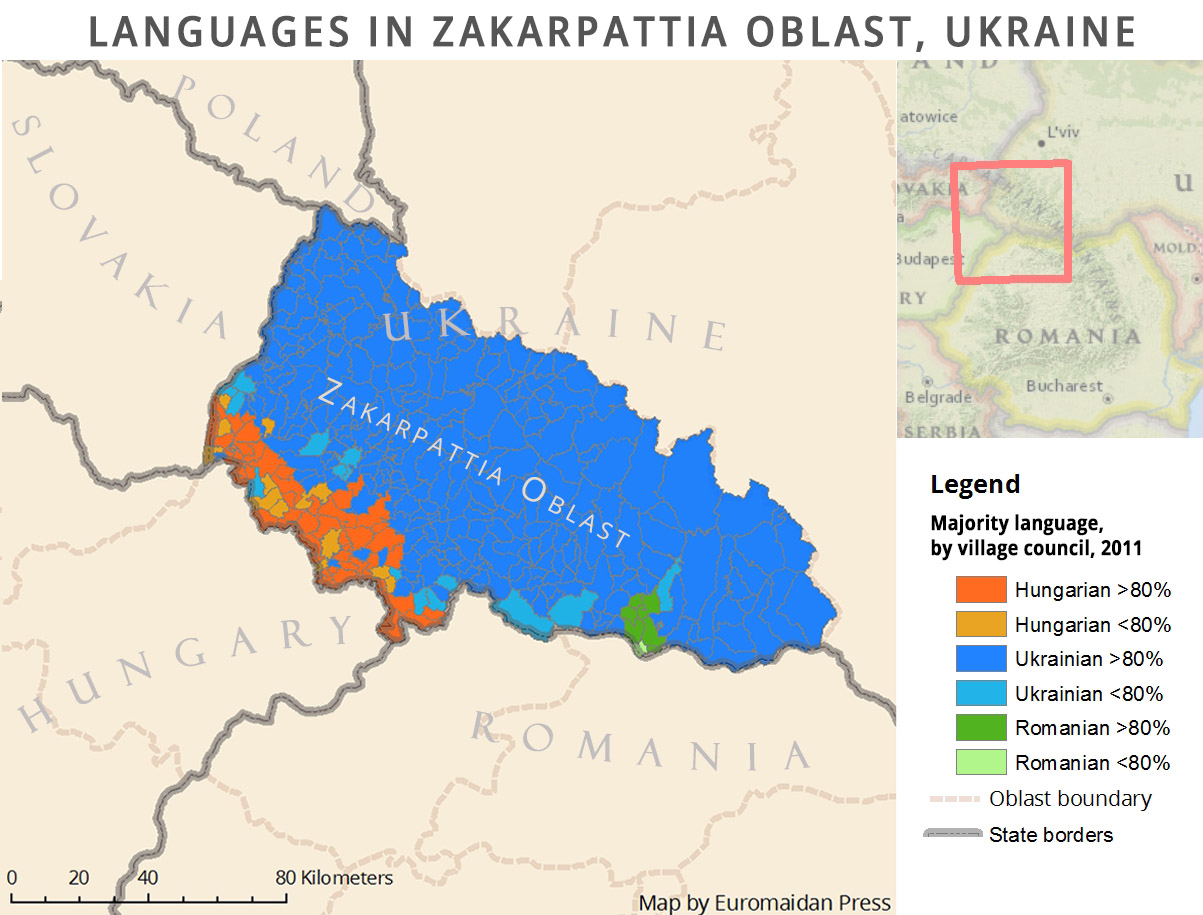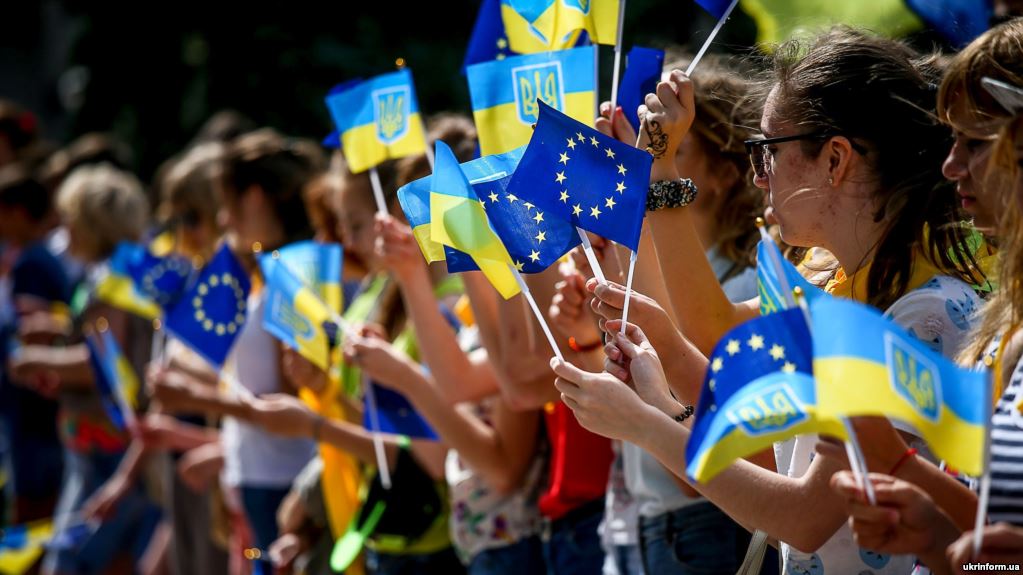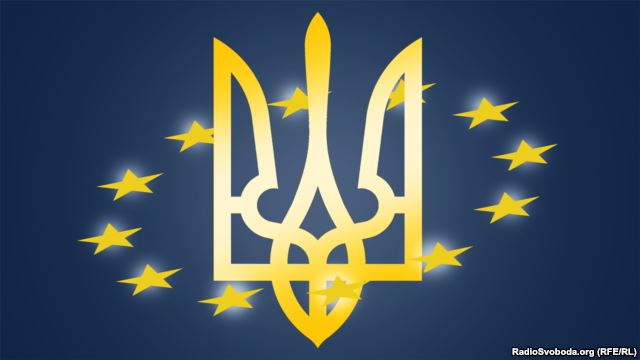The path to European integration hasn’t easy for Ukraine. Last month, the EU sent the Ukrainian government a clear signal – its mistakes and endless procrastinating in the implementation of reforms were not going unnoticed. The latest sign of this new stance comes with the European Commission deciding not to provide Ukraine the final third tranche of the Macro Financial Assistance (MFA) in the amount of €600mn. The reason for this decision is that Ukraine has not implemented four of the 21 conditions for receiving the tranche. Three of these conditions are related to the financial sector and fighting corruption within the country. But one of them concerns Ukraine’s commitment not to introduce trade-restricting measures, in particular lifting the ban on timber exports. This last point has become a hot political issue. However, no matter which party comes out of these negotiations victorious, the EU or Ukraine, there will be one clear loser – Ukraine’s forests.
No EU tranche without free timber trade
The MFA operations are part of a wider agreement that the EU has with neighbouring countries. At the request of Ukraine, the European commission proposed an MFA operation of up to €1.8bn. A corresponding Memorandum of Understanding and Loan Facility Agreement were signed by the two sides in May 2015, and the EU has already paid out two tranches. Problems appeared with the third one, as the EU representatives stated there had been no progress in the following conditions:
- The condition related to the launch of the e-declaration verification process;
- Adoption of a law on credit register;
- The condition on verifying information on beneficiary company owners;
- Lifting of the ban on timber export (as the moratorium introduced by Ukraine does not correspond to Ukraine’s commitments in terms of the World Trade Organization and the Association Agreement).
The final point became a reason for numerous manipulations by Ukraine’s politicians. Some of them speculated that the export of timber is harmful for Ukraine and proves that the EU considers the country only as a raw material appendage. These allegations might well be credible but for one important detail – Ukraine’s politicians and authorities have for many years been earning money from the smuggling of Ukrainian timber. What is also noteworthy is that this smuggling would not be possible without the participation of European companies on the other side of the border.
A 10-year moratorium

The moratorium on the export of round timber was introduced in 2015 and came into full effect in 2017. The validity of the moratorium has been set at 10 years. Its declared goal is to prevent an ecological catastrophe and to support domestic production. The issue mostly concerns Western Ukraine, in particular Zakarpattia (Transcarpathia) Oblast, a mountainous region covered by forests. The state policy in question was presented to the Ukrainian public as being in defense of national interests.
The EU’s main argument is that such a ban restricts free trade and does not help stop illegal deforestation.
First of all it is important to say that Ukraine’s authorities have no single correct answer - to lift the ban or not. Both options will bring them image losses. Keeping the ban may influence Ukraine’s relationships with the EU and prevent further financial support coming to the country, showing Ukrainians that the government is not following the EU integration path. On the other hand, lifting the ban is also not an option.
“The question of lifting the moratorium is neither about economic discussions, nor even ecological ones. Only the political component is left,” the political expert Mykhailo Shelemba comments.
He foresees that lifting the ban will bring the Ukrainian President Petro Poroshenko a reduction in his rating on the eve of the election (2019) in the key region of Western Ukraine.
The Head of the Zakarpattia Institute of Political Studies Viktor Pashchenko compared Zakarpattia timber to Donbas coal:
“Timber brings easy money. And if it is made impossible to earn it legally, people would work illegally just as they do in self-made mines in Donbas. And the politicians here perform either as critics of the opponents, or as owners of a business related to timber.”
But if the question may bring Poroshenko a fall in ratings, leading him to perform a balancing act between two choices – feeding the EU partners empty promises while not lifting the ban, other political forces can use the issue for self-promotion with no harm. Let’s take a look at the brightest example.
One person who slammed the prospects of lifting the ban is Viktor Medvedchuk, a pro-Russian politician and gray cardinal in Ukrainian politics, the leader of the organization Ukrainskyi Vybor:
“Instead of establishing order in the country, promoting economic recovery, stimulating an increase in production volumes and export of finished products with high added value, the EU integrators have for the sake of the next loans turned Ukraine into a raw material appendage. It means that Ukrainians can hardly expect prosperity or a decent standard of living.”
But let’s take a look whose interests this defender of Ukraine’s national interests really serves. Since the occupation of Crimea and the beginning of the war in Donbas, Medvedchuk has taken on the role of intermediary between Ukraine and the Kremlin. In reality, he is a direct transmitter of Moscow’s messages in Ukraine. The godfather of Medvedchuk’s child is Vladimir Putin. The politician is also a member of the trilateral contact group on implementation of the Minsk agreements. Behind the political sympathy towards Moscow, Medvedchuk also has business interests in Russia, in particular in coal, fuel and real estate. He also openly stands for the restoration of business relationships between the two countries.

In addition, Medvedchuk is suspected of being a KGB agent during the Soviet era. In 2014, he was one of the first people to be sanctioned by the US government for his role in Russia’s illegal annexation of Crimea.
So the motives of his statements against EU integration are clear. However, his pro-Russian position isn't the only thing which ties Medvedchuk to the timber story.
The men who flooded the Carpathian Mountains

Medvedchuk was actively involved in the timber business in Western Ukraine, and is one of the two main people behind the devastating consequence of the floods that ravaged the Carpathian Mountains in the 1990s and 2000s. Since then, an environmental disaster caused by deforestation worries many Ukrainians. Its direct consequences are floods and landslides which in turn lead to ruined infrastructure, forced relocation of people and even fatalities. Ukraine has experienced all of the above.
From the late 1990s to the early 2000s, Medvedchuk had been the unofficial “owner” of Zakarpattia. In 1998 he entered the Ukrainian Parliament as a representative of the Social Democratic Party of Ukraine from a constituency from the Zakarpattia Oblast. Together with his companion, the famous football functionary Hryhoriy Surkis, he was involved in the timber business, declaring that it will develop the region, but in fact destroying it.
“MPs from Zakarpattia Oblast, Viktor Medvedchuk and Hryhoriy Surkis, already control around 40% of the timber processing industry in Zakarapattia. Dovzhanske, Svalyavske, Mizhgorodskie, Vylocke, Velykobuchkivske forestries and timber processing complexes belong to the area of their interests,” an article published in 2001 in the newspaper Staryi Zamok, quoted by lisportal.org.ua, says.
The publicist Dmytro Chobit in book “Narcissus” wrote that for several years Medvedchuk and Surkis actively harvested forests in the Carpathian Mountains with the help of the company Center of Support of Development of Zakarpattia, created with their involvement.
“Devastating floods and ecological disasters in recent years in Zakarpattia are related to uncontrolled and predatory deforestation which led to sudden snow melting in mountains and rapid convergence of a large quantity of meltwater in the valleys,” says the book.
Dmytro Chobit wrote his “Narcissus” in 2001. Later Medvedchuk sued the publishers for defamation. At first the court ruled in favor of Medvedchuk and ordered the publishers to refute the false information and pay compensation to the politician. But after the author appealed the verdict in the Supreme Court of Ukraine, it rejected all Medvedchuk’s complaints on recognizing some parts of the book as defamatory.
Then, Medvedchuk got along well with the governor of Zakarpattia, Serhiy Ustich. But later he had problems with another one – Viktor Baloha. First, Baloga was appointed as the governor in 1999; at that time he and Medvedchuk were allies. Then after the Orange Revolution when Viktor Yushchenko became president, Baloha was appointed to the position again. Moreover, Baloha became Yushchenko’s proxy in Zakarpattia. In that period he and Medvedchuk became opponents.

Baloha is famous for subduing all the contraband flows by appointing suitable people in key positions. When in 2015 Hennadiy Moskal became the governor of Zakarpattia, Baloha slowly started to lose his power and publicly criticized illegal deforestation.
Let’s take a closer look at the result of Baloha’s and Medvedchuk’s activities in the region.
The environmental disaster
Baloga and Medvedchuk are not the only actors in the story about illegal deforestation. However, the influence of these two cannot be underestimated. Still, together with politicians and authorities, the important role belongs to the ordinary local citizens who for the sake of easy money are ready to destroy their own homeland.
Along with deforestation, there are other reasons for ecological disasters in Carpathian region. These include inappropriate water use, forestry and agriculture, placing households in the path of mountain water flows and other dangerous areas, large quantities of rubbish etc.
The last devastating flood happened recently. In mid-December 2017, as a result of heavy rain and melting snow, houses were flooded by rising water levels. 146 people from 40 houses were evacuated. The region’s infrastructure, including roads and bridges, suffered damage. The authorities blamed local citizens for building their houses in inappropriate locations. Experts also explained the disaster by the poor quality of local infrastructure, including anti-flooding dams.
These floods were minor compared to the major disasters in previous years, the reasons of which were associated with illegal logging.
In 1998, 130 towns were flooded, more than 2,000 houses destroyed, 17 people died. Large-scale deforestation was among the main reasons.
In 2001, more than 32,000 houses were flooded, several thousand were completely destroyed, and power lines, railways and other infrastructure were damaged. It became clear that money allocated by the state after the last disaster had been stolen, and local authorities were unprepared for the tragedy. Moreover, in the 2000s some 300 companies were felling trees en masse along waterways with the use of heavy equipment in Zakarpattia. Traces led to a company, Barva, associated with Baloha.
Another flood occurred in Zakarpattya in 2005. 715 houses were flooded, as were 30,000 hectares of agricultural land, 133 settlements were left without electricity and telephone communication.
Some experts suggest to recognize the Carpathian Mountains as an area of environmental disaster and require protection at the highest state level:
“Carpathians need state protection on the highest level. I think that it is already impossible to change the situation on the level of an agency of forest resources. There has to be an intervention on the state’s level - the Cabinet of Ministers, President,” Vitaliy Shelemba, the head of the NGO “Chysti Karpaty” told 5.ua in 2016.
Ukrainian officials facilitate illegal timber trade across the border

Journalists have identified former Prime Minister of Ukraine Arseniy Yatseniuk, the leader of his party Narodnyi Front Maksym Burbak, the head of Chernivtsy Oblast Administration and member of Narodnyi Front Oleksandr Feshchuk, and the head of Chernivtsy Customs Office Mykola Salahor as being involved in the illegal export of Ukrainian timber.
In 2016, the journalists of the investigative program on Channel 24 revealed a scheme involving the above-mentioned people.
The timber from Ukraine was being transported towards Romania. The first stop was a village in Lviv Oblast. The villagers thought the train was suspicious and called the police. The latter refused to survey the wagons, saying that they didn’t have the proper permission of the court or railway.
The amount of quality timber in the train was visible to the naked eye. However, according to the documents, the train was carrying firewood. It turned out that the train was moving through the Vadul-Siret customs post to Romania.
Activists helped the journalists to find out the names of the companies which ordered the timber. These were two big wood processing companies from Austria, Schweighofer and Egger. Both have their production in Romania, and both obtain timber from Ukraine in legal or illegal ways. Off the record, locals say that Arseniy Yatseniuk supports active collaboration between Ukrainian suppliers and the Austrian company, as he is an old friend of its owner.
Million-hryvnia timber contracts in the region are signed on the Bukovyna universal stock market. It was revealed that the co-owner of the institution was Tetiana Burbak, the wife of the MP Maksym Burbak. In order not to violate the procedure, the auctions on timber sales were held on this stock market. However, the companies which signed enormous contracts there were not involved in production. The journalists discovered that a number of these companies belong to the son-in-law of the head of Chernivtsi Oblast Administration, Oleksandr Fyshchuk.
And this is only one example of how illegal trading in timber works across the border.
According to an analysis by Yevropeiska Pravda, in 2016 the moratorium did not significantly improve the situation in the industry. A reduction of timber exports was only partially counterbalanced by an increase in the export of wood products. Despite the moratorium and, therefore, the surplus of wood on the domestic market, the index of industrial production in forestry grew by only 1.4%. And it did not reduce the scale of illegal deforestation.
“In my opinion, the rational solution for this situation is to keep the moratorium in force, but together with that create supportive investment conditions for European wood production enterprises. Let them do their business here. However there is a dead end – with our corruption we do not appear attractive to investors,” says Viktor Pashchenko.
The correct answer may be radical: to follow the example of Ukraine's neighboring countries. After defining tree felling as the main cause of flooding, Romania, Poland, and Slovakia have completely banned industrial-scale forest clearing in the Tatra and Carpathian Mountains. However, in Ukraine this option is not yet on the political agenda.





